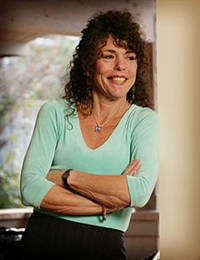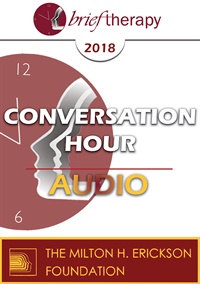BT18 Great Conversation 04 - Depression - Judith Beck, PhD and Michele Weiner-Davis, MSW, LCSW
- Average Rating:
- Not yet rated
- Topic Areas:
- Great Conversations | Depression
- Categories:
- Brief Therapy Conference | Brief Therapy Conference 2018 | Pioneers in Couples and Family Therapy
- Faculty:
- Judith Beck, PhD | Michele Weiner-Davis, LCSW
- Duration:
- 59:10
- Format:
- Audio Only
- Original Program Date:
- Dec 08, 2018
- License:
- Never Expires.
Description
Description: This conversation explores CBT-informed approaches to depression, emphasizing behavioral activation, therapeutic alliance, and clinical flexibility. Beck and Weiner-Davis discuss how hope, core beliefs, and relational support shape recovery, while also addressing medication, family inclusion, and the value of comprehensive evaluation.
Syllabus Description: Depression is a complex of psychosocial, biological, and environmental factors. Perspectives on evaluation and treatment will be offered.
Educational Objectives:
- Describe a typical symptom complex for depression.
- Given a patient with depression, list two methods for beginning treatment.
*Sessions may be edited for content and to preserve confidentiality*
Credits
Handouts
| Timestamped Transcript (854.8 KB) | 19 Pages | Available after Purchase |
| Ericksonian Learning Snapshot (239.7 KB) | 2 Pages | Available after Purchase |
Faculty

Judith Beck, PhD Related Seminars and Products
Judith S. Beck, Ph.D., is President of Beck Institute for Cognitive Behavior Therapy in Philadelphia, a non-profit organization that provides a variety of training programs to health and mental health professionals worldwide, and a Clinical Professor at the University of Pennsylvania. She received her doctoral degree from the University of Pennsylvania in 1982. She has authored over 100 chapters and articles and several books, including Cognitive Behavior Therapy: Basics and Beyond, which has been translated into over 20 languages, Cognitive Therapy for Challenging Problems, and books for consumers on a CBT approach to weight loss and maintenance. She divides her time among teaching, clinical work, supervision, administration, program development and consultation, and writing.

Michele Weiner-Davis, LCSW Related Seminars and Products
Michele Weiner-Davis, LCSW is the Founder of The Divorce Busting Center in Boulder, Colorado. She is a popular TEDx speaker and the author of eight books including, Healing From Infidelity, and the bestselling Divorce Busting and The Sex-Starved Marriage. She is the recipient of several prestigious awards including the Outstanding Contribution to Marriage and Family Therapy Award from AAMFT.


